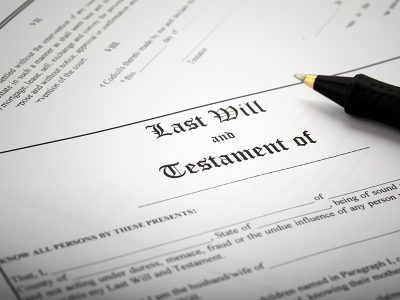PROBATE and TRUST PROPERTY SALES
Losing a loved one is never easy and dealing with the sale of a property through either probate or trust can be overwhelming and add stress to an already emotional process. In many California cases, the decedent’s real property is their largest and most valuable asset. Engaging a real estate agent with specialized knowledge in probate and trust is indispensable for a successful property sale, guaranteeing both maximum returns and efficiency throughout the process.
A former attorney whose practice focused on Probate, Trust and Estate Planning, Michelle is well-versed in the legal requirements and procedures involved in real estate transactions in probate and trust. She has an indistinguishable ability to communicate effectively, accurately, and sympathetically with each individual involved in the process. Michelle’s deep understanding of the selling process, probate court, and the legal jargon of a trust document are quintessential skills for the successful sale of a decedent’s properties.
THE PROBATE PROCESS

Generally speaking, probate occurs when an individual passes away and either left no Will, or just a Will, and has assets over a certain dollar amount set by the court. The process of selling real estate through probate is a series of court-regulated steps that must be carefully monitored and managed. Deadlines are unforgiving, documentation is specialized, and depending on the authority granted to the representative, the court’s oversight must be honored throughout the marketing, offers, negotiations, and ultimate sale of the property.
In addition to the personnel of the court, the sale typically involves the executor or administrator of the estate, the attorney representing the estate, a real estate agent representing the estate, one or more buyers who may place bids with the court, and the buyer’s real estate agent.
Because the judicial system is involved, probate sales have a vocabulary all their own and involve various disclosure documents and contracts that are not typically used in other real estate transactions. Whether you are buying or selling property through probate, your real estate agent should be able to explain the various terms used throughout the transaction, communicate effectively with all parties, have the ability to handle all of the specific documentation required in a probate sale, and be capable of managing all of the steps and parties throughout the process.
STEPS IN A PROBATE REAL ESTATE SALE
Appointment of the Administrator or Executor of the Estate. In most cases, the decedent’s Will names an executor who is designated to handle the distribution of assets, including real property. If there is no will, no one named in the will, or if the executor is unwilling or unable to serve, the court appoints an administrator to handle the duties of the estate. Only the executor or administrator has the authority to sell the real property. For ease of reference, we will call the executor or administrator the “Personal Representative”.
Authority. The Independent Administration of Estates Act (IAEA) outlines the actions a Personal Representative can take and is dependent on the type of authority granted to the Personal Representative. There are two types of authority that can be assigned to a Personal Representative in a probate case – full authority and limited authority. Full authority grants the Personal Representative the ability to act on behalf of the estate with less supervision from the probate court. Limited authority, however, requires more oversight by the court, including an additional court hearing to allow for overbids. Many of the points discussed below address the rules when a Personal Representative has limited authority.
List Price. The Personal Representative establishes a list price for the real property by taking into consideration the appraisal conducted by the Probate Referee. This price is usually determined with the assistance of a real estate agent experienced in probate and trust sales. The property is then listed for sale through that real estate agent.
Strategic Marketing. Whether it is a probate with full or limited authority, the real estate agent markets the property to the public as aggressively as possible to attract the highest offer. This requires a multitude of strategies and an aggressive campaign, including but not limited to, property websites, signage, newspaper advertising, listing on the MLS and other real estate websites, hosting open houses for other real estate agents and potential homebuyers, and the use of social media outlets such as Facebook, Instagram and YouTube. The real estate agent will also schedule appointments to show the property to interested parties who may inquire directly.
Negotiations. While buyers of probate real estate may be looking for a bargain, their range of offers may be limited by the court. When a Personal Representative has limited authority, an accepted offer must be 90% or more of the Probate Referee’s appraised value. Once a buyer is found, the real estate agent assists the seller in negotiating terms that are satisfactory to both parties.
Accepted Offer. When the property has an accepted offer, a Notice of Proposed Action is mailed to all heirs stating the terms of the proposed sale. The heirs have fifteen days to review the notice and pose any objections. If, however, there are no objections, the sale may proceed without a court hearing. If the Personal Representative does not have full authority under the IAEA, or if one or more of the heirs or beneficiaries posted an objection to the Notice of Proposed Action, notice of the sale must be published in a generally distributed local newspaper (unless the Will does not mandate such a requirement).
The attorney then applies for a “confirmation hearing”. The court date is usually within 30-45 days of the date the application is filed. A copy of the application and details of the sale are mailed to all interested parties. Even after the date has been set, the real estate agent should continue to work diligently to advertise the property to all potential buyers for the opportunity to generate high offers, an “over-bidder”, thereby raising the sale price. During this court confirmation hearing, the previously accepted bid may be overbid by another interested party. In this case, the over-bidder must appear at the hearing with a cashier’s check in an amount totaling at least 10% of the minimum overbid price in order to successfully overbid. The minimum overbid is determined by the following formula: 10% of the first $10,000 plus 5% of the balance of the accepted offer.
Example: A property is listed at $550,000. The accepted offer is $525,000. The minimum overbid is calculated as follows:
Accepted offer = $525,000
+ 10% of 10,000 = $1000
+ 5% of $515,000 = $25,750
Minimum overbid = $551,750
10% of $551,750 = $55,175 (amount of the cashier’s check)
If there is more than one overbidder, the highest bid wins. The winning bidder must give the cashier’s check to the Personal Representative and escrow is opened. Escrow will then typically close approximately 30 to 45 days from the court hearing.
GENERAL TIMELINE FOR PROBATE REAL PROPERTY SALES
START (5-6 weeks)
File Petition for Probate
Notice of 1st Court hearing date published in the newspaper
HEARING DATE (2 months)
LETTERS ISSUED BY THE COURT
Order for Probate
Duties and Liabilities
Issue Bond
FULL AUTHORITY SALE (IAEA) – Months 3-6
Interview qualified probate real estate agent
Determine list price (no court limitations)
Execute a listing agreement
Market the property
Execute probate purchase agreement (Acceptance of the offer)
Distribute the Notice of Proposed Action – 15 days
Open Estate Bank Account
Close Escrow
Interview qualified probate real estate agent
Determine list price according to the 90% rule
Execute a listing agreement
Market the property
Notice of Sale
Execute probate purchase agreement (Acceptance of the offer)
Report of sale & Petition for Order Confirming Sale
Notice to buyer, beneficiaries and interested parties
Court hearing and over-bidding process (10% min. overbid deposit)
Court order
Close escrow
PETITION FOR FINAL DISTRIBUTION (9 Months)
COURT HEARING (10 Months)
Order for Probate
Duties and Liabilties
Issue Bond
RECEIPT ON DISTRIBUTION (1 Year)
Case Closed
THE TRUST PROCESS

WHAT IS A TRUST?
A trust is a legal document that creates an entity. This document creates three important positions within it:- The Grantor(s) – the person that is giving assets to be placed in the trust.
- The Trustee(s) – the trustee is the manager of the trust and trust assets, and is bound by the terms of the trust document.
- The Beneficiary(ies) – the person or persons who receive the benefit and enjoyment of those assets.
The primary goal of any trust is to protect the assets within it and to provide instructions as to what happens with the trust assets and when. There are many types of trusts, and each has its own intricacies and purpose, particularly when real estate is involved. There are generally no limits as to what type of asset may be transferred to a trust and can include life insurance, vehicles, bank accounts, investment accounts and of course, real property. When we are talking about trust real property sales, it simply means that the sale of real estate must happen within the legal constructs of the trust document. Real property is typically the most valuable asset held in trust.
WHAT IS A TRUST REAL ESTATE SALE?
A trust real estate sale is the process of selling real estate when title to such property is held in trust. It is much like a typical real estate transaction in that there is a listing process, real estate brokers are involved, marketing of the property, negotiations, contracts, and closing. Trust real estate sales, however, have an added level of complexity due to the fact that the sale must be conducted within the constructs of the trust, and there are additional legal documents that are required for a successful sale.
If the trust is a “revocable trust”, the grantor can sell the real property at any time, in whichever way desired, as they are the property owners. The real property can be sold from within the trust or outside of the trust. In an “irrevocable trust”, the sale is a bit more complicated since the trust cannot be changed without consent from the beneficiaries of the trust, or by court order. In the event of a grantor’s passing, any trust type becomes irrevocable, and the trustee is to follow the directives of the trust document for the benefit of the beneficiaries.
TRUST SALE v. PROBATE SALE
Understanding the key differences between a trust and a probate real estate sale is essential, especially regarding whether court involvement is required. A well-structured trust document outlines and provides detailed instructions for asset management and distribution of assets, thereby reducing potential conflict among the beneficiaries of the trust. To put it simply, as long as the sale adheres to the directives outlined in the trust document, the property can be sold without court intervention and confirmation. So long as the trust is drafted correctly, the trustee may typically move ahead with the sale without court involvement.
Because trust sales have requirements that differ from a regular market sale, the trustee or grantor’s use of a real estate agent who is well-versed in trust sales (and who has an extensive legal background, such as Michelle) provides a difference-making advantage.
Conversely, a probate real estate sale in California will typically require court involvement. The extent of the involvement will vary depending on the authority granted to the Personal Representative under the Independent Administration of Estates Act. If limited authority is granted, the court must confirm the sale, ensuring legal procedures are followed. Alternatively, if the Personal Representative has been granted full authority, the sale may proceed with minimal court oversight. This act allows for more autonomy in managing and selling estate property, somewhat streamlining the probate sale process.
Trust real estate sales are typically preferred due to the simplicity, efficiency, expediency, and cost savings.
WHO CAN SELL TRUST REAL ESTATE?
In order to answer this question, it is essential to know whether the grantor is still alive and how the trust is structured. If the grantor is alive, and the trust is revocable, the grantor can proceed with the decision to sell the properties since the trust can be altered at any time during the grantor’s life. If the grantor is still alive, but the trust is irrevocable, this level of flexibility is not an option. Under this scenario, the grantor may sell the property if and only if the beneficiary consents to the sale.
When a grantor dies, a revocable trust becomes irrevocable and the trustee must follow the instructions in the trust document. It is the trustee’s fiduciary responsibility to manage the assets of the trust for the benefit of the beneficiaries. Typically, the trustee will be in a position to sell and can freely hire any real estate agent they so choose. Although it may be optional to obtain beneficiary approvals before a real estate sale, it may be wise in order to avoid potential future litigation resulting from mismanagement or misunderstandings.
WHY YOU NEED A REAL ESTATE AGENT?
The decision to sell probate and trust property with a specialized real estate agent is one that should be thoughtfully considered, regardless of whether the sale of real property happens during the grantor’s life or after the grantor’s death. A probate or trust real estate sale has more requirements than a regular market sale and it would be most beneficial to the trust and estate beneficiaries to use a real estate agent with market knowledge and the legal capacity to handle such matters.
WHY SHOULD YOU CHOOSE MICHELLE?
With her legal background as a high-net worth estate planning attorney and a dedicated real estate agent, Michelle brings a unique understanding and expertise to the intricacies of handling probate and trust sales, including dealing with executors, administrators, trustees, beneficiaries, and attorneys. She is willing to share this experience in all of her transactions for her client’s benefit. Although Michelle is no longer an active estate planning attorney, the knowledge remains and she is able to guide her clients through the complexities of trust and probate real estate sales.
READY TO NAVIGATE THE COMPLEXITIES OF PROBATE
REAL ESTATE IN ORANGE COUNTY?
If you recently became the executor of a probate estate, the administrator of a Will, or the trustee of a trust owning real estate assets and have questions regarding the disposal of such assets, reach out to Michelle. Michelle is here to help make sense of the intricacies surrounding probate and trust real estate sales.
If you are an attorney in need of a real estate professional who understands the legal jargon and procedures involved in probate and trust sales, call Michelle to learn more about how she can help your client seamlessly navigate with the highest level of success.
**The information provided herein does not, and is not intended to, constitute legal or tax advice; instead, all information on this site is for general informational purposes only. Readers of this site should contact their attorney or C.P.A. to obtain advice with respect to any particular legal or tax matter.

